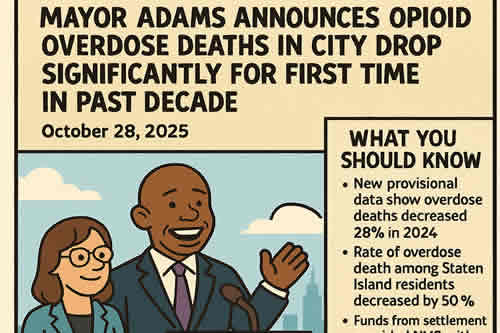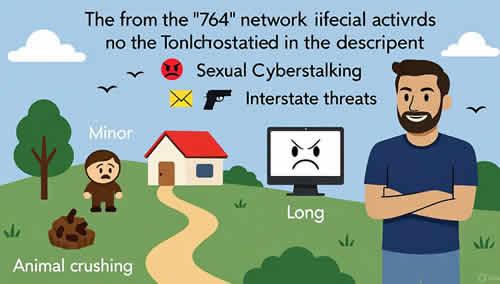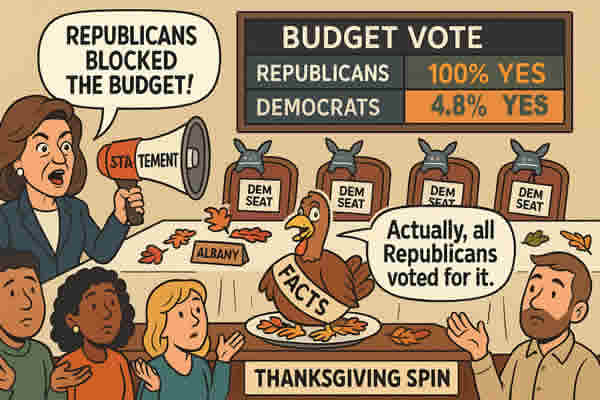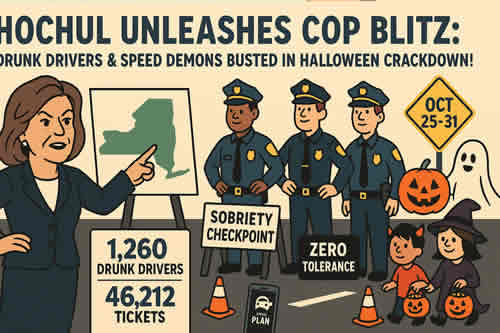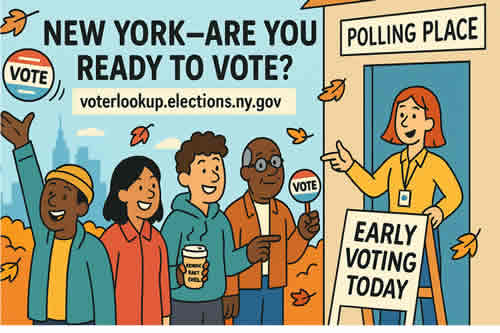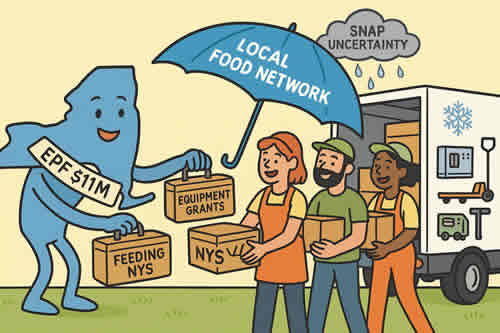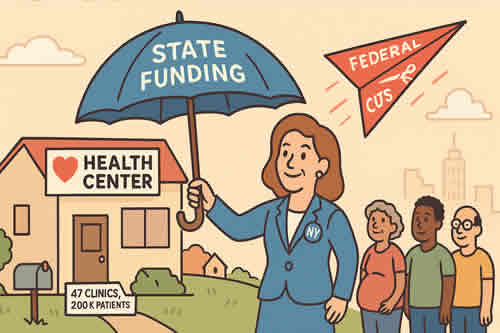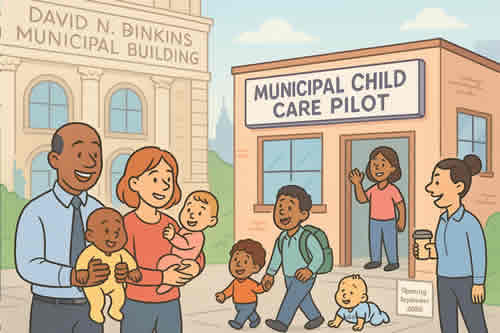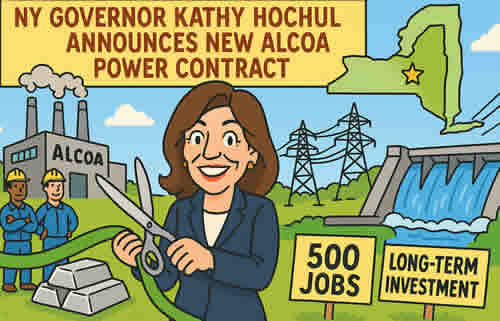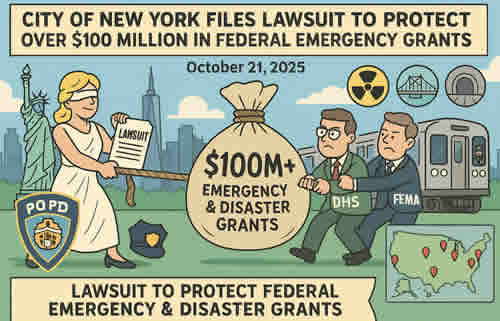New York City recorded 2,192 overdose deaths in 2024, down 28% from 3,056 in 2023—the first substantial drop after nearly 10 years of increases, Mayor Eric Adams and DOHMH Acting Commissioner Dr. Michelle Morse said Tuesday. Declines were seen across all five boroughs, with Staten Island down about 49%. Black and Latino New Yorkers saw 29% reductions yet still died at roughly twice the rate of white residents, and the Bronx remains the hardest-hit borough. City, state, and federal investments—backed by nearly $190 million in opioid-settlement funds to date and projected to reach $550 million by 2041—have expanded prevention, treatment, and harm-reduction services, including Overdose Prevention Centers and wider access to methadone and buprenorphine. The city budgeted $41 million in FY2025 for overdose response. New Yorkers can call or text 988 for 24/7 support.
Mayor Adams Announces Opioid Overdose Deaths in City Drop Significantly for First Time in Past Decade
– New York City Mayor Eric Adams and New York City Department of Health and Mental Hygiene (DOHMH) Acting Commissioner Dr. Michelle Morse today announced new data released by DOHMH that shows a significant decrease in overdose deaths in New York City in 2024 — marking the first substantial decrease following a nearly 10-year period of increasing overdose deaths in the five boroughs. There were 2,192 deaths last year, down from 3,056 in 2023, mirroring national trends, and overdose deaths decreased almost universally across demographic groups and neighborhoods in 2024. Additionally, residents of all five boroughs saw decreases in overdose deaths and, for the first time since 2018, overdose deaths decreased among Black and Latino New Yorkers; however, significant racial and geographic inequities persist.
“The data we are releasing today represents a major shift in a decades-long overdose crises that has claimed the lives of so many New Yorkers and Americans across the nation. Progress on reducing opioid overdoses will never make up for the families that have been devastated and the communities torn apart by these drugs, but it gives us hope that brighter days are ahead,” said Mayor Adams. “I am proud of the work our administration has done to stay focused on this issue by pursuing litigation and using funds from opioid settlements proactively, strategically, and forcefully to support those who are struggling. We will continue to make the right investments in programs and treatments that help keep New Yorkers safe and healthy.”
“While we are finally seeing the needle move on fatal overdoses across the city, too many New Yorkers still continue to die from preventable deaths,” said DOHMH Acting Commissioner Dr. Morse. “As city leaders, we must be steadfast in our support of programs that save lives, while we continue to address historic disinvestment and other forms of structural racism. I am grateful for the tireless dedication of advocates, local providers, Health Department staff, and partners inside and outside government as we work to keep our communities and neighbors safe and connected to care.”
Earlier this summer, Mayor Adams announced that New York City saw the lowest quarter in five years for opioid overdose deaths while making further investments to drive down opioid overdoses. In 2023, New York City saw a slight decline for the first time since 2018 in overdose deaths.
Despite seeing promising decreases, inequities in overdose deaths still persist in New York City. Black and Latino New Yorkers each saw a 29 percent reduction in overdose deaths but died at twice the rate of their white counterparts. While the rate of fatal overdose decreased 24 percent among Bronx residents, the borough continues to have the highest rate of overdose deaths — at more than double the rate of Manhattan, the borough with the second-highest rate. The rate of overdose deaths among Staten Island residents decreased by about 49 percent. Residents of Hunts Point-Mott Haven, Highbridge-Morrisania, Crotona-Tremont, East Harlem, and Fordham-Bronx Park continued to bear the greatest burden of overdose deaths in 2024.
Securing Opioid Settlement Funds
Today’s announcement builds on the work the city has done to bring justice to the victims and families of the opioid epidemic, including just last month, when the city announced steps toward recovering approximately $48 million from a new proposed settlement with Purdue Pharma and the Sackler family. In January 2018, the City of New York sued manufacturers and distributors of prescription opioids to remedy the harms caused within the city by the misleading marketing and improper distribution of these drugs. New York Attorney General Letitia James filed a similar lawsuit in March 2019. Settlements reached by both the city and the state, as well as a court victory by Attorney General James, have provided the City of New York alone with nearly $190 million as of the end of Fiscal Year (FY) 2025, which, with the most recent settlement, is expected to grow to a total of more than $550 million by 2041. In April 2022, Mayor Adams and Attorney General James announced allocations for the first of hundreds of millions of dollars coming to New York City to combat the opioid crisis. In September 2024, Mayor Adams announced city funding will ramp up to an annual $50 million for opioid prevention and treatment.
Investing in Treatment and Supports
To address the continued need for comprehensive services, the city continues to invest in evidence-based practices and partner with local providers to reach the communities most in need. In FY 2025 alone, the city allocated $41 million across DOHMH, NYC Health + Hospitals, and the Office of the New York City Chief Medical Examiner to support the expansion of services around the city and enhance the existing network of care.
Ongoing funds from opioid settlements through DOHMH have supported wraparound services for syringe service programs, including on-site medical care, connections to health care and social services, and support for basic needs. In FY 2025, syringe service programs that operate Overdose Prevention Centers provided approximately 39,000 harm reduction services to more than 8,000 participants, reducing the risk of overdose and infectious disease and providing referrals to treatment and other health and social services. In 2023, the Adams administration also allocated $3 million to eight providers on Staten Island through a request for proposal to directly support the expansion of buprenorphine treatment, outreach and engagement, and care navigation services in the borough. This past July, the city announced $4 million in annual funding for nine outpatient and opioid treatment programs citywide to increase access to methadone and buprenorphine. Contracting for the expansion of the number of hospitals participating in DOHMH’s emergency department-based nonfatal opioid overdose response program called Relay remains ongoing.
Since beginning to receive funding through opioid settlements, NYC Health + Hospitals has had over 9,700 patient engagements with expanded substance use services at Street Health Outreach and Wellness vans, nearly 83,000 encounters with patients in emergency departments with addiction services provided by the Emergency Department Leads program, and has successfully launched a cutting-edge addiction simulation training for emergency department prescribers. Additionally, NYC Health + Hospitals has provided comprehensive addiction consultations at over 24,700 inpatient admissions through the Consult for Addiction Treatment and Care in Hospitals program.
Further, the Office of the Chief Medical Examiner’s Drug Intelligence and Intervention Group program has offered support services to more than 4,000 individuals following the death of a loved one from an overdose.
All actions taken by Mayor Adams and the Adams administration to prevent overdose deaths also underscore the administration’s efforts to improve and extend the average lifespan of all New Yorkers through “HealthyNYC” to 83 years by 2030. HealthyNYC sets ambitious targets to address the greatest drivers of premature death, including chronic and diet-related diseases, screenable cancers, overdose, suicide, maternal mortality, violence, and COVID-19.
New Yorkers looking to access substance use services can call or text 988 for free, confidential support 24/7. Resources can also be found on the “NYC HealthMap” and on DOHMH’s website.
October 28, 2025 NEW YORK
Sources: NYC.gov , Midtown Tribune news

